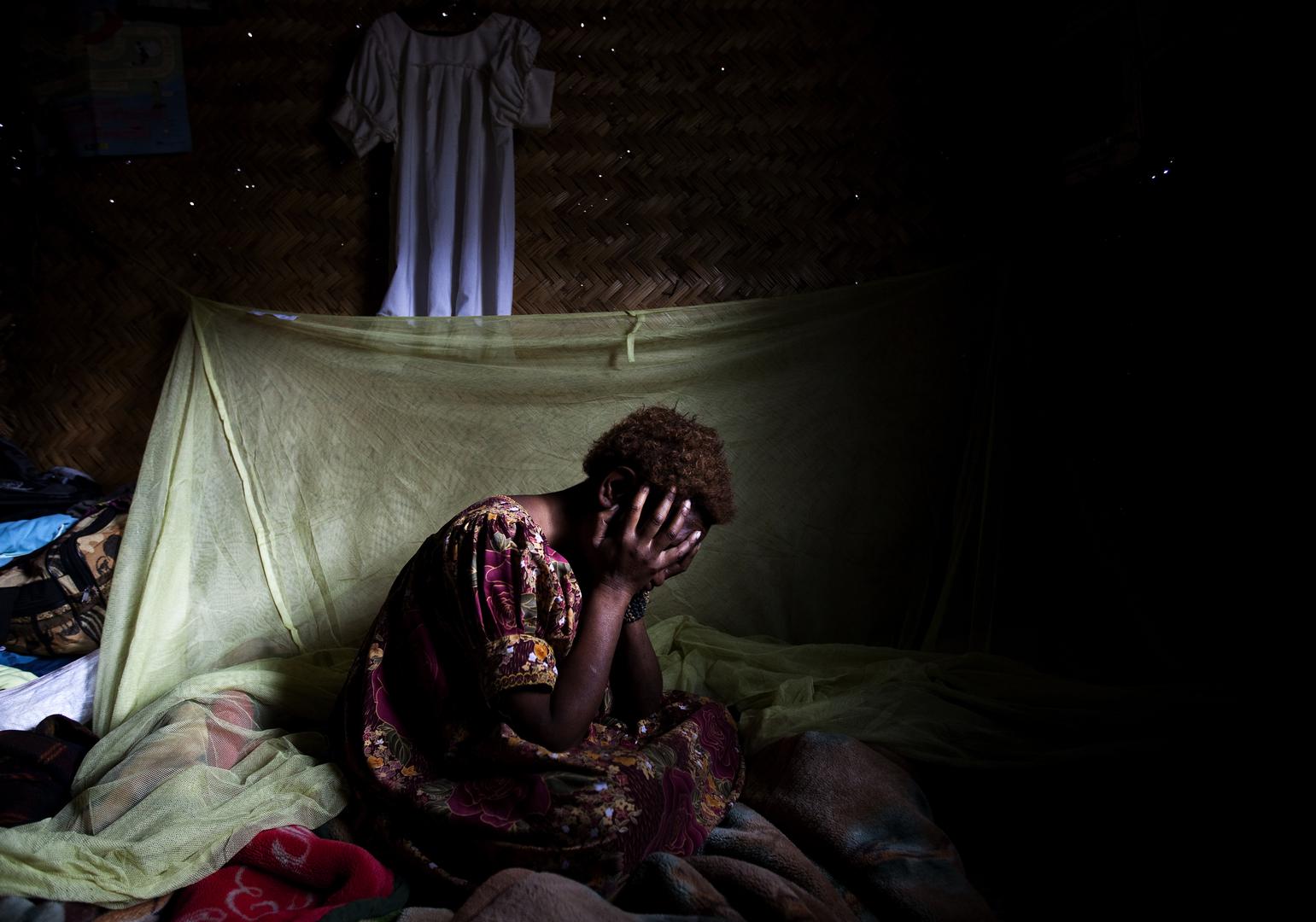Some of the most powerful and sophisticated actors on the world stage are companies, not governments. In 2011 alone, oil and gas behemoth ExxonMobil generated revenues of US$467 billion—the size of Norway’s entire economy. Walmart, the world’s third-largest employer with more than 2 million workers, has a workforce that trails only the militaries of the United States and China in size.
Many global businesses are run with consideration for the well-being of the people whose lives they touch. But others—whether through incompetence or by design—seriously harm the communities around them, their workers, and even the governments under which they work.
Much of the problem lies with companies themselves—even those that think of themselves as ethical. Too many still deal with human rights problems on the fly, without forethought and often in a de facto regulatory vacuum that they lobby vigorously to maintain. In many parts of the world, company human rights practices are shaped by self-created policies, voluntary initiatives, and unenforceable “commitments”—not by binding laws and regulations. History’s long and growing catalogue of corporate human rights disasters shows how badly companies can go astray without proper regulation. Yet many companies fight to keep themselves free of oversight, as though it were an existential threat.
But the lion’s share of the responsibility to prevent and address company-driven human rights abuse lies with governments. As companies continue to extend their global reach, their actions affect the human rights of more and more people in profoundly important ways. Governments have failed to keep pace.
Most, if not all, countries have laws on the books requiring that companies adhere to basic human rights standards. Some governments take these responsibilities more seriously than others, while others are so weak that the task of regulating multinational corporations running vast and highly complex operations on their soil is hopelessly beyond them.
Governments of countries that are home to the world’s biggest and most powerful corporations—including the US, European nations, and emerging powers like Brazil and China—have consistently and inexcusably failed to scrutinize the actions of their companies when they go abroad. Most governments fall somewhere in between the extremes; few, if any, do all that they should.
These combined failures cause real and lasting harm to vulnerable people in communities all over the world. In 2012, Human Rights Watch showed how government regulators in India stand idle while out-of-control mining operations fuel corruption and harm entire communities (Out of Control, 2012). Farmers in Goa, initially hopeful that mining would improve the local economy, instead watched as pollution poisoned groundwater and withered their crops. We also investigated how government regulators in Bangladesh avert their eyes as the country’s $650 million tannery industry runs roughshod over environmental, health, and safety laws—poisoning and maiming its workers and spewing pollutants into nearby communities (Toxic Tanneries, 2012). And in Qatar, we documented concerns that, unless reforms are undertaken now, the country’s hugely expensive preparations to host the 2022 World Cup could be marred by abuses against migrant laborers doing much of the construction on state-of-the-art stadiums, sleek new hotels, and other cup-related projects (Building a Better World Cup, 2012).
We have nearly reached the paltry limits of what can be achieved with the current enforcement-free approach to the human rights problems of global companies. It is time for governments to pull their heads out of the sand, look the problem they face in the eye, and accept their responsibility to oversee and regulate company human rights practices.
The Guiding Principles
As year one of the UN-backed Guiding Principles on Business and Human Rights, 2012 was supposed to mark a huge step forward for efforts to address these problems. But while the Guiding Principles do mark progress in some areas, they also underscore the failures of the current approach to business and human rights issues—one that is driven by weak government action and undue deference to the prerogatives of businesses.
The Guiding Principles were supposed to “operationalize” the UN’s “Protect, Respect, Remedy” framework, which stresses the responsibility of governments to protect individuals from human rights abuses tied to business operations, the responsibility of companies to respect human rights, and the need for abuse victims to be able to access effective remedies.
The principles mark a real step forward in some ways, not least because they have secured remarkably strong buy-in from companies that just a decade ago would have disputed the idea they even have human rights responsibilities. A potentially useful and practical guide to companies that want to behave responsibly, they bring us closer than we have ever been to a shared understanding of how businesses should think about at least some of their core human rights responsibilities.
The principles also emphasize a crucial point that could prevent many real-world human rights problems if companies take it up effectively and in good faith: the importance of human rights due diligence. This is the idea that companies should design and implement effective policies and procedures to identify any risk of causing human rights abuse, act to avoid that harm, and position themselves to respond appropriately to abuses that occur in spite of those safeguards.
Last year, for example, Human Rights Watch found evidence that Nevsun Resources, a Canadian mining firm, might be implicated in the use of forced labor—absolutely prohibited under international law—via a local contractor in Eritrea (Hear No Evil: Forced Labor and Corporate Responsibility in Eritrea's Mining Sector, January 2013). It was a foreseeable problem: Eritrea’s government mobilizes and exploits forced labor on a massive scale and assigns some of its conscripts to work for state-affiliated companies, including the one Nevsun hired. Conscripts are often subjected to appalling conditions—and to imprisonment and torture if they try to flee from their “jobs.” In this case, Nevsun initially failed to take adequate steps to prevent its contractor from using forced labor at its project site, and the company’s belated efforts to investigate and address the allegations have floundered. Other companies developing mines in Eritrea now seem in danger of falling into the same trap. This is precisely the sort of situation that human rights due diligence is meant to help companies avoid.
But the Guiding Principles are no panacea. Human Rights Watch and others have criticized the principles for setting a lower bar than international human rights standards in some areas, like ensuring a victim’s right to redress and accountability. This is especially problematic because many companies now see the principles—incorrectly—as the world’s definitive, one-stop standard for good human rights practice. There is a risk that many companies will simply ignore standards the Guiding Principles do not echo.
Most important, while the principles provide some useful guidance to businesses interested in behaving responsibly they also represent a woefully inadequate approach to business and human rights issues. That is because without any mechanism to ensure compliance or to measure implementation, they cannot actually require companies to do anything at all. Companies can reject the principles altogether without consequence—or publicly embrace them while doing absolutely nothing to put them into practice. The principles do not explicitly insist that governments regulate companies with the requisite scope and rigor; they also fail to push governments hard enough to ensure that companies respect human rights.
For all the progress they represent in some areas, the Guiding Principles may actually help entrench a dominant paradigm among companies and many governments, which derides the rules and regulations that companies need in favor of voluntary and largely unenforceable commitments that simply don’t do nearly enough to protect human rights.
Voluntary Initiatives and their Shortcomings
The last decade has seen a proliferation of voluntary initiatives that bring together multinational corporations, civil society actors, and governments to address the human rights concerns of particular global industries. They aim to provide crucial guidance to companies that want to operate responsibly, while allowing member companies to cast themselves as responsible and ethical.
For example, the Voluntary Principles on Security and Human Rights brings together major oil, mining, and gas companies around standards requiring them to prevent and address abuses by security forces that protect their operations. The Global Network Initiative includes companies in the information and communications technology sector that have pledged to avoid complicity in censorship or surveillance by repressive governments. There are many others of varying strength and effectiveness.
These voluntary initiatives have a useful role to play. Human Rights Watch helped found the two described above, and we regularly work through those and other voluntary initiatives to try and secure better human rights practice by companies.
But they are not enough.
Voluntary initiatives all face the same crucial limitations: they are only as strong as their corporate members choose to make them, and they don’t apply to companies that don’t want to join. They often do a good job of helping to define good company human rights practice, but enforceable rules are the only way of ensuring real, systematic change.
The world’s dearth of binding human rights rules for companies has consequences. When companies stand in for absentee governments, in whatever role, things tend to end badly. Decades of failed development efforts led by oil companies in Nigeria’s oil-rich Niger Delta have proven that point with brutal eloquence, and it holds equally true in other contexts.
In 2010, we interviewed women who described being gang-raped at the hands of private security guards employed by Canadian-owned Barrick Gold at a Papua New Guinea mine (Gold’s Costly Dividend, 2011). Crucial lapses in oversight meant that Barrick—the world’s largest gold company—did not take the allegations seriously or do anything to address them until we went into the field to get the evidence ourselves.
That should have been the government’s job, not ours. But Papua New Guinea’s government is hobbled by corruption, poverty, and remarkably low institutional capacity. Instead of overseeing Barrick’s activities, it effectively left the company to do the job itself. Barrick has since pursued reforms aimed at preventing future abuse and has promised to compensate victims. But that doesn’t change the fact that even a sophisticated and well-resourced company proved unable to bridge the gap left by missing government oversight.
It wasn’t only the government of Papua New Guinea that left Barrick to its own devices, but also the government of Canada, where Barrick—and indeed most of the world’s mining and exploration companies—are based. Canada’s government probably has as much experience overseeing complex mining operations as any other on earth. Allegations of human rights abuse by Canadian firms surface regularly in countries around the globe, but authorities in Ottawa do not know how many of these are credible. In fact, they have steadfastly refused to give themselves a mandate to find out.
This failure of high-capacity governments to scrutinize the human rights practices of their own corporate citizens when they operate abroad is a problem that urgently needs solving.
Need for Extraterritorial Oversight and Regulation
Governments worldwide have consistently failed to oversee or regulate the extraterritorial human rights practices of their companies. The only way forward is to change this.
Multinational companies operate all around the world in countries that cannot or will not provide enough oversight or regulation of their human rights practices. The trend is only increasing. Weakly governed developing countries like Papua New Guinea, Bangladesh, Mozambique, and Guinea continue to welcome massive new foreign investment in industries with an immense potential for environmental destruction and human rights abuse.
If companies are not going to get meaningful human rights oversight from the governments of the countries in which they operate, they need to get it somewhere else. At a minimum, governments should take it upon themselves to proactively monitor the conduct of their companies when they work in other countries and to investigate credible allegations of human rights abuse linked to those operations.
Doing so would still leave hard questions on the table—like how governments should articulate and enforce extraterritorial human rights obligations for companies. But it would at least end an indefensible status quo where governments refuse to find out whether their corporate citizens are credibly implicated in serious human rights abuses abroad.
Beyond this, Human Rights Watch and others have argued that governments should regulate the human rights practices of their businesses, including by requiring them to carry out human rights due diligence activity and fulfill their human rights responsibilities under international law. Not only is this responsible policy, but it is supported by emerging norms of international law.
In 2011, a meeting of international and human rights law experts adopted the Maastricht Principles on Extraterritorial Obligations of States in the area of Economic, Social and Cultural Rights. Among other things the Maastricht Principles describe the obligation of states to regulate non-state actors such as transnational corporations and other business enterprises that are domiciled or closely linked in other ways to their territories.
The path from here to there is reasonably clear. The real question is whether governments will find the courage to take steps in the right direction, and whether businesses will stand in their way or act as partners. So far, both have disappointed, and vulnerable people have suffered as a result.
Red Herrings
Companies have their reasons for opposing extraterritorial human rights oversight or regulation by home governments, but they don’t stand up well to scrutiny.
One of the most common arguments is that such oversight would put them at a competitive disadvantage against unscrupulous firms from countries with less progressive governments. But frankly, companies should not invest in markets where they cannot effectively compete without being complicit in serious human rights abuses that they need to hide from their own governments and shareholders.
Plus, there is ample reason to think these concerns are overblown. In recent years, governments around the world have passed increasingly tough laws that criminalize overseas corruption by their citizens and companies. Corruption is far trickier for businesses to stay clear of than complicity in serious human rights abuses. Yet while tougher anti-corruption laws may have made companies more honest, there is no real evidence they have made them less competitive.
The only legitimate fear companies have about responsible, measured steps in the direction of extraterritorial oversight and regulation is that “responsible” and “measured” might in some cases be code for “extreme” and “anti-business.” Some worry that opening the door even a crack would lead to stifling overregulation and the criminalization of honest, understandable mistakes.
Compounding this is suspicion among some business leaders that nongovernmental advocates of oversight and regulation are inherently hostile toward their industries. And those fears are somewhat understandable—while many nongovernmental organizations are pushing for reasonable rules, there are also activists who probably would like nothing better than to see the mining industry, for instance, crushed by excessive regulation. But those voices shouldn’t dictate the terms of this discussion or be used as an excuse to avoid having it.
Companies may never end up liking the kind of oversight and regulation that they need, and they may be correct in calculating that it is not in their narrow self-interest to see it come about. But extraterritorial oversight and regulation of company human rights practices can be done in a way that businesses can live with and profit under. Government action need not be unduly burdensome in order to be effective, and there is far too much avoidable human suffering on the other side of the scale to justify inaction.
First Steps and Useful Models
We already have at least some useful models that show us what responsible, measured government action on these issues ought to look like.
Under section 1504 of the Dodd-Frank financial overhaul bill, all US-listed oil, mining, and gas companies will be required to publish the payments they make to foreign governments. This essentially makes mandatory the core requirement of a multi-stakeholder initiative called the Extractive Industry Transparency Initiative (EITI).
EITI was born of an understanding that the vast revenues extractive industries produce have often fueled corruption and abuse rather than development and progress. EITI tries to combat this by promoting greater transparency. Section 1504 is a modest but potentially transformative step in the right direction.
Incredibly a powerful coalition of industry groups led by the American Petroleum Institute has sued to gut the rules that would put the law into force. They are effectively demanding the right to keep the public and even their own shareholders in the dark about their payments to foreign governments. Industry groups have also sued to obstruct implementation of another key component of Dodd-Frank—a provision that would require companies to ensure that their mineral supply chains do not fuel conflict and abuse in the Democratic Republic of Congo.
In spite of all the acrimony (or perhaps underlying it), Dodd-Frank’s transparency requirement speaks to a controversial but important truth: most of what has been achieved through the hodgepodge of voluntary initiatives that dominate the global business and human rights landscape could be done more effectively and even-handedly via binding laws and regulations.
The core requirements of many voluntary initiatives could be translated into relatively straightforward regulatory mandates. As models for regulation, those standards have the advantage of having already been accepted as legitimate benchmarks for corporate behavior by leading global companies. Their implementation has also been proved feasible and useful for the many companies who have taken them up voluntarily. Of course, most companies fiercely oppose the idea that their voluntary human rights commitments should be transformed into the basis for binding human rights regulation.
But that doesn’t mean it wouldn’t work.
Similarly, as Human Rights Watch has argued, human rights due diligence would be a stronger tool if governments make it mandatory. The US government recently took a narrow but positive step in this direction, requiring companies that invest in Burma to publicly report any due diligence activities they undertake on a variety of issues including human rights and to report to it any human rights risks, impacts, and mitigation efforts the company identifies.
Yet another useful model for government action in this area lies in international efforts to combat corruption. A steadily growing number of governments have moved to criminalize bribery of foreign public officials, no matter where in the world it occurs. In fact, the UN Convention against Corruption and the Organisation for Economic Co-operation and Development’s (OECD) Anti-Bribery Convention both require this. Companies have responded to tough anti-bribery laws by implementing rigorous due diligence programs that are not altogether different from the human rights due diligence activity that the Guiding Principles promote.
Governments should also look at how they can push companies towards better human rights practices through existing multilateral institutions, which should in turn examine how they can better help the governments they lend to address these issues. For instance, governments could work through the World Bank’s International Finance Corporation (IFC) to better tie the international financing that private companies receive to robust human rights safeguards and require independent monitoring of company compliance.
This would not only help push IFC-funded projects towards better human rights performance, it would likely influence other lenderstoo. In 2012, the IFC began implementing new performance standards that go some way toward considering human rights in international financing—a small but important step.
Other existing institutions could also be made stronger and more useful. The OECD Guidelines for Multinational Enterprises set out baseline standards for corporate performance in human rights, environmental protection, and a range of other issues. They also call on member countries to establish “contact points”—forums that are able to hear complaints regarding the overseas activities of companies. However, these contact points are generally quite weak and strictly non-adjudicatory. In 2012, Denmark revamped its contact point to allow it to undertake proactive, independent investigations of companies—a real step forward.
Finally, governments should examine the positive precedents that international labor standards set regarding private, transnational employment agencies. As our research in countries such as Bahrain and the United Arab Emirates has documented, many migrant workers suffer serious abuses after being placed in overseas employment by these agencies and many are deliberately misled about the conditions they can expect in their new jobs.
Governments that have ratified International Labour Organization (ILO) Convention 181 must take measures to protect and prevent abuse of migrant workers recruited for work abroad by private employment agencies based on their own soil. That convention also calls for penalties for agencies that engage in abuses or fraudulent practices. ILO Convention 189 on Domestic Workers sets out similar obligations for private employment agencies recruiting domestic workers, including those migrating for overseas employment.
Ultimately what’s needed is a workable balance that reduces serious human rights abuses while acknowledging the reality of a complex world where companies do not always have full control over the local environments in which they operate.
Getting there will require something from all sides.
Governments need to find the courage to make respect for human rights by powerful corporations mandatory wherever they operate, rather than treating it as just a nice idea. Human rights activists should help design workable regulatory frameworks that are fair to companies. And businesses should welcome, rather than reject, efforts to provide them with the kind of rules and oversight they need to be responsible actors who respect the fundamental human rights of the people they impact.
Chris Albin-Lackey is a senior researcher in the Business and Human Rights division.






